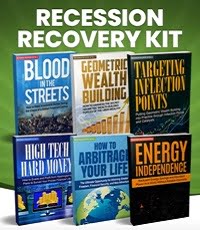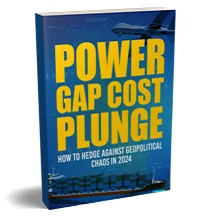
Fresh Fruit or Rotting Vegetables?
A subtle gas seems to always be vented into the atmosphere at the sunset of an extended bull market. As the light fades, an odor that’s indiscernible from that of fresh fruit or rotting vegetables wafts down Wall Street. You can almost smell it. But what it is you smell is too faint to accurately characterize.
The Dow Jones Industrial Average (DJIA) closed at a record high of 26,616 on January 26 – nearly five months ago. Since then it has swooned and spiked with uncertain direction. Buying the dip at this juncture may not work out in your favor.
When the stock market peaked out in mid-2007, in the early days leading up to the 2008-09 crash, some of Wall Street’s best and brightest mistook the smell of the moderate initial decline for that of fresh fruit. They bought the dip. At the time, however, it was still unclear what the source of the subtle odor was. Was it really fresh fruit? Or was it actually rotting vegetables?
The answer remained unknown until mid-2008. That’s when the bear market delivered the rancid and punishing stench of rotting vegetables. If you recall, the DJIA crashed by over 50 percent.
There are dips to buy. There are dips not to buy. The stock market dip that occurred between mid-2007 and mid-2008 was a dip not to buy. What about today’s dip?
Highly Dubious
Billionaire hedge fund manager Paul Tudor Jones has a long track record for successfully sniffing out the direction of the market. This week, the man with three names shared what his olfactory senses are presently detecting.
The special occasion was a conversation with Goldman Sachs CEO Lloyd Blankfein, as part of the bank’s “Talks at GS” series. Through a strange mixture of grins and grimaces Jones offered the following general assessment:
“You have to be thinking this is a highly dubious sustainable price… You look at prices of stocks, real estate, anything. We’re going to have to mean revert to a normal real rate of interest with a normal term premium that’s existed for 250 years. We’re going to have to get back to that. We’re going to have to get back to a sustainable fiscal policy and that probably means the price of assets goes down in the very long run.”
Mean reversion of real interest rates and the decline of asset prices over the long run are gloomy prospects, as far as we can tell. Jones, regrettably, didn’t elaborate on what exactly happens when there’s a significant long run asset price decline. Obviously, a stock market index chart – like the S&P 500 – would exhibit a wave pattern that generally trends down and to the right for, perhaps, a decade or more. But what else happens?
In just a moment, and with a little help from the departed, we’ll attempt to clarify the matter. Yet, first, we must make an important distinction: The 2008-09 financial crisis was not a significant long run asset price decline; it was merely a blip. A long run asset price decline is something much more severe. It’s a depression.
America hasn’t experienced a real lengthy and desolate economic depression since the 1930s. In fact, it has been so long, there’s hardly a living soul left who experienced the nation’s last real depression. Hence, we must visit the crypt to find a proper first-hand account.
A Walk on the Wild Side
What follows, for your consideration and satisfaction, are the portentous words of the late Nelson Algren; a long forgotten novelist and from his long forgotten novel titled, A Walk on the Wild Side:
“The Ladder of Success had been inverted [in 1931], the top was the bottom, and the bottom was the top. Leaders of men still sporting gold watches were lugging baby photographs door to door with their soles flapping. Physicians were out selling skin lighteners and ship captains queued in hope of a cabin boy’s mop and pail.
“Offices of great fire insurance companies went up in smoke, which seemed no more than just. When the fire department – long unpaid – cleared off, little remained but scorched files, swivel-chairs on which no one would ever swivel again, lovely heaps of frosted glass, and all that mahogany.
“All that mahogany that hadn’t helped anybody but brokers after all. Then the brokers began jumping off rooftops with no greater consideration for those passing below than they’d had when their luck was running. Emperors of industry snatched all the loose cash on which they could lay hand and made one fast last run. Lawyers sued one another just to keep in practice.
“And every bughouse had one little usurer hidden away in a cell all his own where he did nothing but figure percent with his fingernail on the wall, day after day after day.
“In less time than it takes to say God with your mouth open, the go-getting door-to-door canvasser became the backbone of the American economy. He went to work for Realsilk Hose or Hoover Vacuum long enough to go-get himself a dozen pair of Realsilk hose or a second-hand sweeper by stealing it part by part. There was also small change, milk money and such, left lying about on shelves and sills while housewives studied one proposition or another. Change snatching too came under the head of go-getting, for hundreds subsisted upon it week in and week out.
“However, the secretary of the Federation of Labor pointed out, Business was resisting further decline.
“Self-reliance for the penniless and government aid to those who already had more than they could use was the plan.”
Is this what Jones meant by “the price of assets goes down in the very long run?” We suspect the answer will be revealed soon enough.
Sincerely,
MN Gordon
for Economic Prism






Winning this trade war means to the consumer paying more taxes, under the guise of tariffs, and spending a greater fraction of his receding income on basic staples. In other words, winning a trade war is getting poorer.